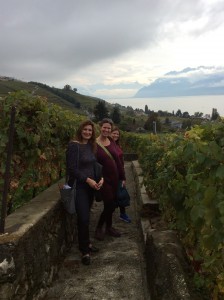
Photographs of a Brown University community member sharing their experience with racial microaggressions and microaffirmations.
http://www.brown.edu/race
https://flic.kr/p/oPUPYg
Please find this post at: https://clairekampdush.com/2019/08/11/recommendations-for-interviewing-job-candidates/
I teach a PhD Job Market course on a biennial schedule, and we always talk about ways to combat gender and race microaggressions during interviewing. Over the past year or so, it has also come up in my family development course when we discuss the motherhood penalty, and in talks I gave to the Fisher Women in Business organization at Ohio State’s Fisher College of Business. Given this, I decided to write an email to my colleagues and graduate students when we were interviewing for a new faculty colleague last year. I think there are recommendations in here for everyone. Check it out and follow this advice! I would love to hear your additional recommendations in the comments.
Dear colleagues and students,
As we bring our faculty candidates to our campus, we aim to set the tone that we are a welcoming, inclusive, and supportive community. In my role as the diversity representative on the our search, I want to offer some guidance to highlight our community and avoid challenges that can occur in an employee selection process.
First, a list of legal and illegal questions:
| TOPIC | LEGAL QUESTIONS | DISCRIMINATORY QUESTIONS |
| Family Status | Do you have any responsibilities that conflict with the job attendance or travel requirements? *If this question is asked, it must be asked of all applicants. |
Are you married?
What is your spouse’s name? What is your maiden name? Do you have any children or plans to have them? What are you childcare arrangements? What is your spouse’s job? |
| Pregnancy Status | None. | Are you pregnant? When are you due? |
| Race | None. | What is your race? |
| Religion | None. | What is your religion?
What religious holidays do you observe? |
| Sex/Gender Identity | None. | Are you male or female? |
| Age | None. | How old are you?
What is your birthdate? |
| Sexual Identity | None | Are you gay? |
| Citizenship or Nationality | Can you show proof of your eligibility to work in the United States? | Are you a U.S. citizen? Where were you born?
What is your “native tongue”? |
| Disability | Are you able to perform the essential functions of this job with or without reasonable accommodation?
Show the applicant the position description so he or she can give an informed answer. |
Are you disabled?
What is the nature or severity of your disability? What is your condition? Have you had any recent or past illnesses or operations? |
| Military | What type of training or education did you receive in the military? | If you’ve been in the military, were you honorably discharged? |
| Source: Advance, University of Michigan, Handbook for Faculty Searches and Hiring http://sitemaker.umich.edu/advance/files/HandbookforFacultySearchesandHiring.pdf. | ||
Note that these questions can also come much more informally. For example, in talking about my own children, maybe I ask “do you have children?” That would be illegal. Or, in talking about how Columbus is a great city for your partner to also find a job, I inquire as to whether they have a partner, or even worse, I assume that they are married and in a different-gender relationship, and I ask them about their husband (if they identify as a woman). This question would be illegal. Rarely are questions asked as directly as those listed in the table above. Often times, it is in casual conversation at a meal, or on a campus tour, that these illegal questions come up. If you accidentally ask an illegal question, and you realize it before they answer, you can say “oops, never mind, you do not need to answer that” and then change the subject. It is easy to slip up when chatting, so just be cognizant. If you hear someone else ask an illegal question, you can again say “oops, never mind, you do not need to answer that” and talk to the person about why the question was not appropriate later.
Continue reading Recommendations for Interviewing Job Candidates


